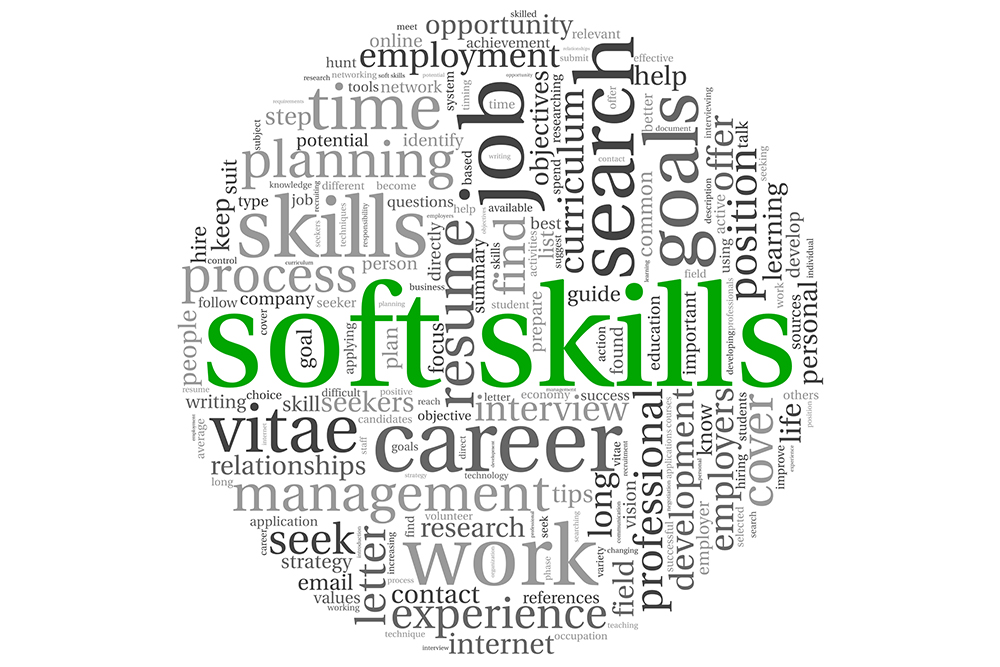When it comes to employee training, it’s important to have a clear idea of what trainees are expected to gain from the training process. This could include specific skills—how to operate a forklift, how to complete the monthly accounting checkout, etc.—but it can, and should, also encourage the development of what some would call soft skills.
A Focus on Soft Skills
For example, LinkedIn polled 1,200 talent developers, 400 people managers, 2,200 employees, and 200 executives in its 2018 Workforce Learning Report.
The report found that when asked “what are the most important skills for employees to learn from L&D programs?” talent developers, people managers, and executives answered “leadership,” “communication,” and “collaboration” more often or at least as often as they answered “role-specific skills.”
These are skills that relate primarily to interpersonal interactions and collaboration—not so much knowing how to do something (hard skills) but knowing how to interact effectively with others.
Why Are Soft Skills So Important?
So, why are soft skills seen as so important? For many employers, the technical “hard” skills that are required for performing a job—operating the forklift, completing the monthly checkout, etc.—are just the baseline.
Any employee who wants to fill that role needs to be proficient at certain hard skills. That’s the price of entry.
But, it’s the soft skills that set rock star employees apart from their coworkers. An experienced forklift driver who gets along with his or her coworkers, is always on time, and takes pride in his or her work is more valuable than one who is antagonistic and does just enough to get by, even if he or she is equally proficient in terms of technical skills.
Soft skills can even make up for less-than-stellar hard skills in some cases. How much does it really matter if the forklift driver with the great attitude is a bit slower in unloading shipments than the grumpy forklift driver?
While soft skills certainly have a place in the workplace, they can be difficult to train relative to hard skills. They are less easily defined and more subjective. How do you measure improvements in leadership or collaboration skills?
If you ask colleagues to rank a group of employees in terms of collaboration, you will most likely get different rankings depending on who you ask. Still, there are some steps organizations can take to more strategically focus on soft skill development.
Develop Metrics
Although it can be difficult to objectively measure soft skills, it doesn’t mean that they can’t be measured at all. As an example, 360-degree feedback can be a great way to gauge an employee’s soft skills.
The first step is to define the soft skills you want to promote, and then gather input on how those in the organization perform with respect to those skills.
It might be useful to ask employees to evaluate themselves on the same skills that others will be evaluating. The comparisons and potential gaps in these comparisons can provide a good starting point for prioritizing areas for improvement.
Document Best Practices
There are probably plenty of employees in most organizations who already exemplify what the organization wants in terms of soft skills. The actions that exhibit those skills are best practices that can be documented and shared with other employees.
Train!
Once you have a list of soft skills you want to promote, documented best practices, and a means of evaluating progress, start teaching your trainees those skills and best practices.
Because the focus here is on soft skills, ensuring that the training offers the opportunity to practice these skills can aid in learning.
Reinforce Positive Behaviors
Training should be an ongoing activity throughout an employee’s time with your organization, and part of training involves rewarding desirable behaviors. This can come in many forms: a gift card awarded to someone demonstrating exceptional collaboration, company awards for leadership, etc.
Strong soft skills can turn an ordinary employee into an extraordinary one. And while some may think that soft skills are a part of a person’s nature—you either have them or you don’t—it is, in fact, possible to teach and develop these skills, and companies should make the effort to do so.

